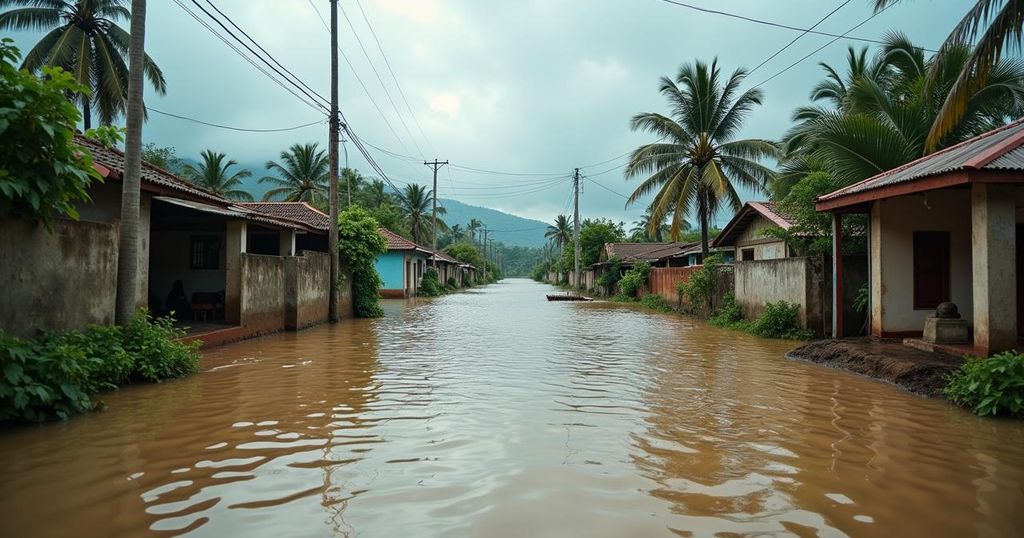Catastrophic Flooding in West Africa: Climate Change and Humanitarian Crisis
West and Central Africa have recently experienced devastating flooding due to climate change, particularly impacting Nigeria, Mali, Senegal, and Chad. Over a thousand people have died, and millions are affected, especially in Maiduguri, Nigeria, where individuals lack access to food and shelter. Local journalists describe severe hardships, and experts attribute the disaster to a mix of climate change and inadequate infrastructure, emphasizing the need for urgent international aid and improvement in resilience measures.
In recent weeks, West and Central Africa have faced extreme flooding, severely impacting regions such as Nigeria, Mali, Senegal, and Chad. This climatic catastrophe has resulted in over a thousand fatalities and affected millions, exacerbating the already dire situation caused by limited resources and infrastructure deficiencies in these vulnerable countries. The situation in Maiduguri, Nigeria’s largest city in the northeastern Borno state, has been particularly devastating, with Governor Babagana Zulum reporting that up to two million individuals are suffering from the aftermath of the floods, with basic necessities such as food and shelter in short supply. The plight of those affected is brought to light through the accounts of local journalists and climate experts. Isma’il Alfa Abdulrahim, a journalist from Maiduguri, shared harrowing stories of rescue efforts for trapped individuals, including a pregnant woman who gave birth while awaiting rescue. His firsthand experience illustrates the urgency and magnitude of the crisis. Dr. Vincent Nduka Ojeh, a prominent climatologist, indicated that the unprecedented rainfall in Borno was a result of climate change, highlighting the collapse of the Alau dam, which had been a known risk for years. Poor infrastructure and corruption further compounded the disaster, as funds intended for infrastructure projects were misallocated. The dire need for environmental resilience is evident, as is the essential role that external support from developed nations must play in aiding these affected regions amidst mounting climate pressures. The narrative establishes the stark contrast in response efforts between developed and developing regions, as evident from the immediate $11 billion pledged by the European Union for recovery in Central European flood-stricken areas versus the mere fraction secured for Nigeria and other nations in the Global South.
The article sheds light on the severe flooding that has hit West and Central Africa, specifically focusing on Nigeria, Mali, Senegal, and Chad. This natural disaster has resulted in significant loss of life and widespread displacement, exacerbated by climate change and inadequate infrastructure. The region has been facing an escalating climate crisis, reflected in dramatic shifts in weather patterns that have led to catastrophic consequences, illustrating a clear link between climate disruption and humanitarian emergencies.
In conclusion, the flooding in West and Central Africa presents a critical humanitarian crisis that underscores the intersecting challenges of climate change, infrastructure decay, and resource scarcity faced by developing nations. Urgent international support and a commitment to strengthening local resilience are imperative to mitigate further disasters. The narratives shared from the ground underline the human cost of these climate impacts and call for a concerted effort to address both immediate needs and long-term adaptation strategies.
Original Source: insideclimatenews.org




Post Comment